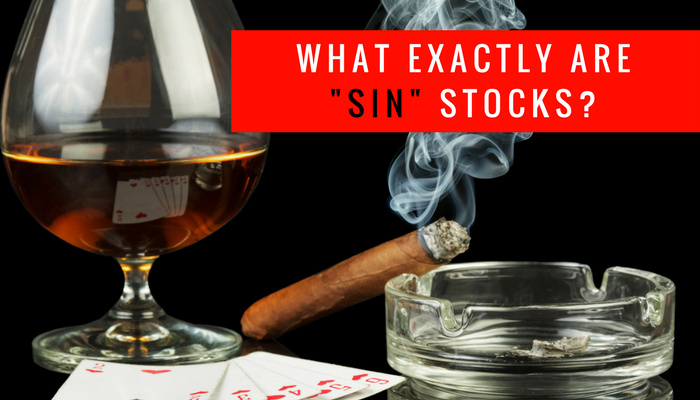What Exactly Are "Sin" Stocks?
We all have vices, but few would go so far as to call them actual "sins." However, in the world of investments, a vice means the potential to invest in a "sin stock." Within the realm of Socially Responsible Investing (SRI), there are two approaches to stock selection: affirmative and negative. Affirmative would be the selection of a stock based upon the kinds of activities or products that the investing public "likes". Negative, on the other hand, is avoiding companies because you are against what they are offering.

Although it seems a little weird to lump this with socially responsible investments, it does accurately represent "worldview" investing, and some investors, in particular the deeply religious, tend to prefer portfolios that avoid the inclusion of sin stocks. So without further adieu, here is a very brief introduction to that world through some information on Investopedia.
So, What IS a 'Sin Stock'?
In a nutshell, it's the stock of a company either directly involved in or associated with activities widely considered to be unethical or immoral. Sin stocks are found in sectors whose activities are frowned upon by some or most of society, because they are perceived as making money from exploiting human weaknesses and frailties. Sin stock sectors therefore include alcohol, tobacco, gambling, sex-related industries, weapons manufacturers and the military. Also known as “sinful stocks", they are the polar opposite of ethical investing and socially responsible investing, whose proponents emphasize investments that benefit society.
Can you really make money by avoiding a certain class of stocks?
It depends. Investing in sin stocks may be anathema to some investors, but the fact is that many of them are sound investments. The very nature of their business ensures that they have a steady stream of consumers. As well, since demand for their products or services is relatively inelastic, their business is fairly recession-proof. The lesser degree of competition also ensures fat margins and solid profits for sin stocks.
Research suggests that sin stocks are also likely to be undervalued because their negative image leads to them being shunned by analysts and institutional investors. This makes them attractive investments for investors willing to take the plunge, since a number of the biggest sin stocks have great long-term records of generating shareholder value. From 2008 to 2012, the U.S. tobacco, distilleries and brewers sub-sectors generated double-digit annual returns, easily outperforming the broad market.
Some of the best-known sin stocks include Altria Group, Anheuser-Busch InBev, Diageo, General Dynamics, Smith & Wesson, Caesar’s Entertainment, Las Vegas Sands and Philip Morris.
Disclosure: None.
Disclaimer: All data and information provided on this site is strictly the author’s ...
more


